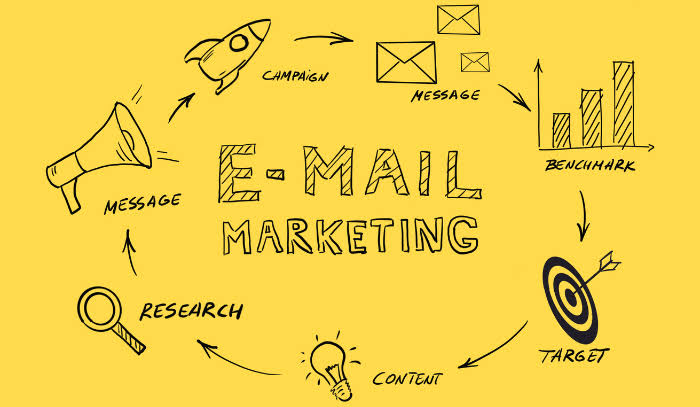Email marketing is still a powerful tool in the ever-changing world of digital marketing, particularly for companies in Nigeria. This is because strategies in this field change quickly to satisfy the needs of consumers. Email marketing has become a vital component of marketing due to its capacity to reach target audience with tailored messages. This has allowed businesses to interact with their clients, foster customer loyalty, and increase sales at a reasonable cost. Learn about how to establish successful email marketing objectives in Nigeria

Nigeria, the largest country in Africa, offers a dynamic market full of business opportunities for companies in many sectors. The Nigerian consumer landscape is diverse, encompassing both remote rural communities and bustling urban centers. This also includes a range of demographics, preferences, and behaviors. The opportunity and challenge for businesses looking to connect with Nigerian consumers through effective marketing strategies are found in this rich tapestry of cultural diversity.
Email marketing stands out as a dependable beacon among the clamor of digital channels competing for consumers' attention. This is because it provides a direct line of communication for audiences to interact with brands more meaningfully and personally. Personalized messages that align with subscribers' interests and requirements, arrive straight in their inboxes. Unlike social media platforms, where algorithms and timelines determine visibility.

Nonetheless, the effectiveness of email marketing depends not only on the provision of engaging content but also on the definition of precise, quantifiable objectives that direct the course and concentration of campaigns. Establishing specific goals gives Nigerian businesses a road map for navigating the complexities of email marketing. This ensures that each campaign is purpose-driven and in line with larger company goals.
Goal setting strategies in email marketing

Setting clear email marketing goals allows businesses to define their priorities and focus their efforts on activities that are relevant to their objectives. Rather than sending emails randomly, having specific goals allows businesses to tailor their content, segmentation, and timing to achieve the desired results.
Goals also provide a clear vision of what needs to be done and outline the steps necessary to get there. With well-defined goals in an email marketing strategy, businesses can create campaigns that address the needs and preferences of their target audience while driving desired actions, such as purchasing, signing up for a newsletter, or visiting a website.
Businesses can also hold themselves accountable for the success of their email marketing campaigns by setting goals. Setting benchmarks and key performance indicators (KPIs) enables businesses to monitor
Define your email marketing objectives

Aligning email marketing goals with larger business objectives ensures that email marketing efforts are consistent with the company's overall strategy and goals. This allows businesses to maximize the impact of their campaigns while also contributing directly to the bottom line.
Whether the goal is to increase sales, drive website traffic, or raise brand awareness, it is critical to prioritize goals that are relevant to the company's specific needs and priorities. This ensures that each email sent has a purpose and contributes to the overall organizational goals.
For example, if a company's overall goal is to increase sales, email marketing objectives may include nurturing leads, rewarding loyal customers, promoting new products or services, and driving conversions. However, if increasing brand awareness is the main objective, email marketing campaigns might put more of an emphasis on bringing in new clients by creating interesting content and cultivating relationships with subscribers.
Establish quantifiable precise goals

Establishing measurable, time-bound, and actionable goals will help businesses give their email marketing campaigns focus and direction. Businesses can monitor their progress, assess their success, and make necessary course corrections by establishing benchmarks and key performance indicators.
Businesses can evaluate the success of their email marketing campaigns and make informed decisions by putting specific metrics in place, such as target open rate, click-through rate, or conversion rate.
Align your objectives with audience segmentation and personalization

Segment your target audience using customer data. Businesses can customize their content and messaging to appeal to particular customer types by segmenting their audiences based on factors like behavior, preferences, or demographics. This improves consumer engagement and conversions while making the emails more relevant.
A deeper connection is established and action is encouraged, such as making a purchase or forwarding the email to others, with personalized content and subject lines that speak directly to the recipient's needs and interests.
Set reasonable deadlines and expectations

The advancement of email marketing objectives can be influenced by audience growth rates, seasonality, and industry trends. When establishing deadlines and expectations, businesses should take these things into account to make sure they give themselves enough time to see significant results.
For example, email engagement and conversion rates can fluctuate year-over-year for a business operating in a seasonal industry like retail or travel. In these situations, it's critical to modify expectations appropriately and acknowledge that specific seasons of the year may produce better or worse outcomes.
Track and assess your development

Prioritizing the tracking of important metrics and performance indicators will help businesses determine how successful their email marketing campaigns are. Businesses can spot trends, opportunities, and areas for improvement by routinely analyzing analytics and reports.
By utilizing email marketing analytics tools and dashboards, companies can gain insights into the effectiveness of their campaigns and optimize their strategies by making data-driven decisions.
Modify tactics in light of results

Businesses need to be willing to modify their digital marketing plans in response to performance information and insights obtained through monitoring and assessment activities. They can optimize their email marketing campaigns for better results by experimenting with different types of content, fine-tuning audience segmentation, or changing subject lines.
Businesses can continuously improve their strategies with the aid of testing, experimentation, and optimization to increase effectiveness and maximize the results of their email marketing campaigns.
The better the results are for your business, the more effective your email campaign is. Establishing specific goals is crucial for directing your efforts and determining success, whether your goals are to increase sales, increase engagement, or drive traffic to your website. With so many goals to pursue, it's important to give priority to those that are most closely related to the requirements of your company. Common objectives for email marketing campaigns are:
- Boost the open rate
- Boost online traffic and lower cart abandonment
- Bring back dormant subscribers
- Get input from customers and assist with new product launches


